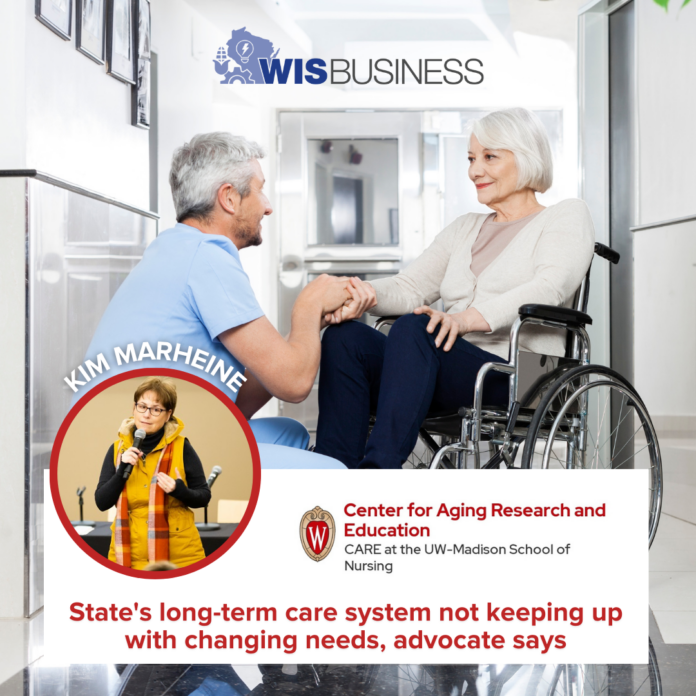Wisconsin’s long-term care system isn’t keeping up with the changing needs of the state’s aging population, according to a Board on Aging & Long Term Care member.
Kim Marheine, the board’s state long term care ombudsman, says the organization has been hearing more complaints and concerns about critical needs in recent years, such as health and welfare, safety and more.
“And some that are life-threatening,” she said yesterday during a Newsmakers interview on WisconsinEye. “People not getting out of bed maybe over a weekend, because there isn’t enough staff in not just their nursing home, but in their assisted living community as well.”
Marheine drew a parallel between the current situation — in which many long-term care sites are struggling to meet proposed staffing standards — and the 1970s, when widespread concerns about the quality of long-term care led to the creation of ombudsman programs.
“We also have to talk about funding as well,” she said. “We have to talk about Medicare, Medicaid reimbursement. We have to talk about more positions for ombudsman programs, for aging and disability resource centers to offer those supports.”
Devon Christianson, director of the Aging & Disability Resource Center of Brown County, highlighted a “shift in the acuity level” across levels of care.
“So now I would say hospitals have actually become part of the long-term care system as people struggle to find placements, because those placement amounts and alternatives are shrinking, and the complexity of people’s care needs,” she said.
The Wisconsin Hospital Association has highlighted this trend as a major concern in previous reports. Its latest workforce report shows the number of nursing home beds licensed in the state has dropped from 46,000 in 2002 to just over 26,000 now, while the number of elderly, blind and disabled people enrolled in Medicaid has nearly doubled, from 143,000 to 270,000.
Christainson also said family members play a significant role in long-term elder care and noted “they are now an expected care partner,” but argued “we don’t have policy or support” for them to continue a high level of care, such as administering medications and other complex care.
The WisEye interview touched on recently proposed federal minimum staffing standards for long-term care, under which a facility with about 100 residents would need up to three registered nurses, 11 nurse aides and two additional nursing staff per shift, Newsmakers Host Lisa Pugh said.
A recent Kaiser Family Foundation study found just 41% of Wisconsin’s nursing facilities meet the proposed requirements, which would be phased in over several years.
Marheine says the proposed rule “speaks to how we value long-term care systems and the persons who receive those services,” noting a lack of training and education for service providers contributes to the challenge.
“Essentially, every aspect of nursing home regulation has been modified over the last several years,” she said. “Staffing is the one area that hasn’t been touched since I believe the ‘80s. And with the changes in complexity, with that lack of other support being available, it only makes sense that we look to try to bring more value to that caregiver role.”
Still, she acknowledged the more strict standards are “confounding” for many care providers who aren’t sure how they will meet them in the coming years.
Watch the video.







